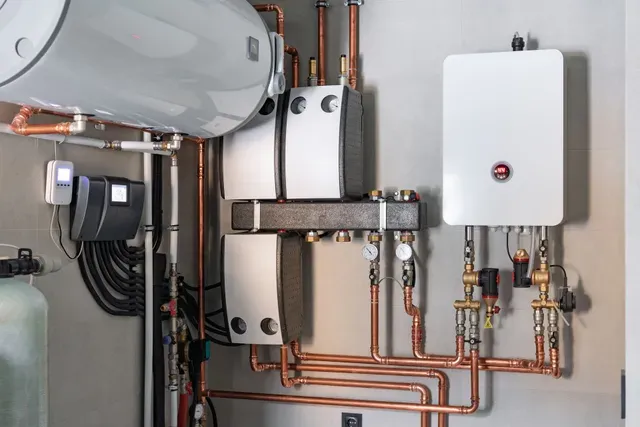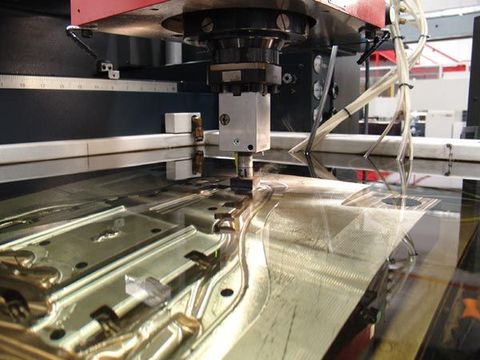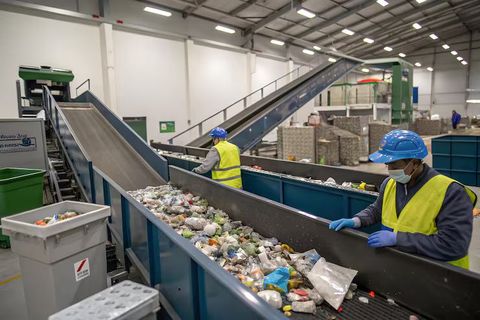The technology behind water heating has evolved significantly, focusing on efficiency, safety, and sustainability. Today’s systems aim to minimize energy waste while ensuring consistent water temperature. This topic exists because heating water consumes a large portion of household energy making efficient systems essential for reducing consumption and supporting eco-friendly living.
Why Water Heaters Matter Today
Modern water heaters play a vital role in comfort, health, and energy efficiency. Hot water is essential for hygiene, sanitation, and daily living. Beyond convenience, energy-efficient models contribute to lower carbon emissions and reduced utility bills, supporting global sustainability goals.
For homeowners, choosing the right water heater impacts energy usage and environmental footprint. For commercial sectors like hotels, hospitals, and restaurants, water heating systems are crucial for operational efficiency and regulatory compliance.
Key benefits of modern water heaters include:
-
Energy savings: Advanced insulation and smart controls reduce waste.
-
Safety features: Modern designs prevent overheating and scalding.
-
Sustainability: Solar and hybrid systems reduce fossil fuel dependence.
-
Smart technology: Wi-Fi-enabled systems offer temperature monitoring and scheduling.
Energy-efficient water heaters also align with global energy transition efforts, making this topic especially relevant as nations push toward renewable energy adoption.
Recent Updates and Trends in 2024–2025
In the past year, the water heating industry has seen major innovations aimed at energy efficiency and smart technology integration. The global market has shifted toward systems that balance performance with environmental responsibility.
Key Trends (2024–2025):
| Trend | Description |
|---|---|
| Smart Controls | Many models now include app-based temperature control, leak detection, and energy usage tracking. |
| Hybrid Water Heaters | Combining heat pump technology with traditional systems, hybrids offer up to 60% energy savings compared to standard electric models. |
| Solar Integration | Increased interest in solar water heaters, especially in sun-rich regions like India, Australia, and parts of the U.S. |
| Eco-Friendly Regulations | Governments promoting low-emission appliances through incentives and mandatory efficiency ratings. |
| Compact & Instant Systems | Growing preference for tankless models in urban homes with limited space. |
In 2025, several manufacturers have announced AI-powered diagnostics in smart heaters, allowing automatic maintenance alerts and performance optimization. This shift reflects a global trend toward digitally connected home ecosystems.
Regulations and Government Policies
Water heaters are regulated to ensure safety, energy efficiency, and environmental compliance. Policies vary by country but generally include performance standards and labeling programs.
In the United States, the Department of Energy (DOE) enforces the Energy Conservation Standards, requiring water heaters to meet minimum efficiency levels under the Energy Star program.
In the European Union, the Ecodesign Directive (2009/125/EC) sets minimum energy performance requirements, while the Energy Labelling Regulation (2017/1369) ensures transparency for consumers comparing models.
In India, the Bureau of Energy Efficiency (BEE) rates water heaters using a star system, encouraging manufacturers to produce more efficient appliances. The Energy Conservation Act supports nationwide awareness and adoption of efficient technologies.
In Japan, water heaters fall under the Top Runner Program, which pushes manufacturers to improve efficiency based on the best-performing models.
These policies aim to reduce energy demand, promote renewable integration, and protect consumers from inefficient or unsafe products.
Helpful Tools and Resources
Several online tools, calculators, and platforms help users choose or manage their water heating systems effectively. These resources support informed decisions and energy management:
-
Energy Star Water Heater Finder (U.S.) – Helps compare models based on size, fuel type, and efficiency rating.
-
BEE India Star Label Portal – Provides efficiency details for water heaters available in India.
-
Home Energy Saver Calculator – Estimates energy savings and payback periods for efficient water heating options.
-
Manufacturer Apps – Brands like AO Smith, Rheem, and Bosch offer mobile apps for real-time monitoring and control.
-
Renewable Energy Calculators – Tools from the International Renewable Energy Agency (IRENA) help estimate solar water heating potential by location.
Using such tools not only improves awareness but also promotes sustainable water heating practices that align with global energy conservation goals.
Common Questions About Water Heaters
What are the main types of water heaters available today?
The main categories include storage tank water heaters, tankless or on-demand systems, heat pump water heaters, solar water heaters, and condensing models. Each type varies in energy efficiency, installation needs, and maintenance requirements.
How long does a typical water heater last?
Most water heaters have a lifespan of 8 to 15 years, depending on the type, maintenance routine, and water quality. Regular flushing and servicing can extend their life.
Which water heater is best for energy efficiency?
Heat pump and solar water heaters offer the highest efficiency. They use renewable energy or ambient heat to warm water, significantly reducing electricity consumption.
What maintenance does a water heater require?
Routine maintenance includes checking the anode rod, flushing the tank to remove sediment, inspecting pressure valves, and ensuring thermostat accuracy. Tankless models require descaling to prevent mineral buildup.
Are smart water heaters worth it?
Yes, smart water heaters provide greater control, safety, and energy optimization. Features like remote monitoring, scheduling, and automatic leak detection help prevent energy waste and damage.
Conclusion
Water heaters have evolved from simple heating devices into smart, energy-efficient systems that support sustainable living and comfort. As global energy policies shift toward renewable sources and carbon reduction, efficient water heating remains a practical step toward responsible energy use.
Staying informed about recent technologies, government standards, and available tools ensures better performance and long-term savings. Whether for home or commercial use, understanding how water heaters function and how to maintain them can lead to smarter, greener choices for modern living.





